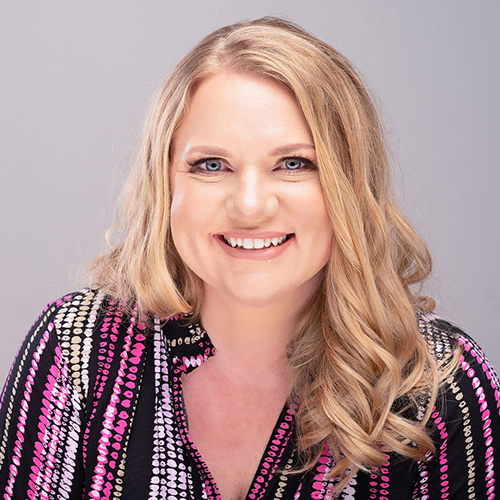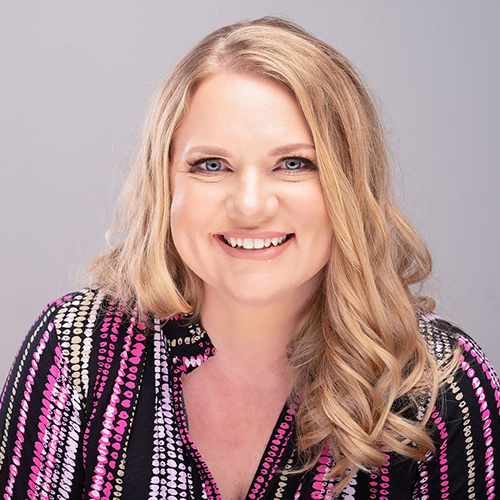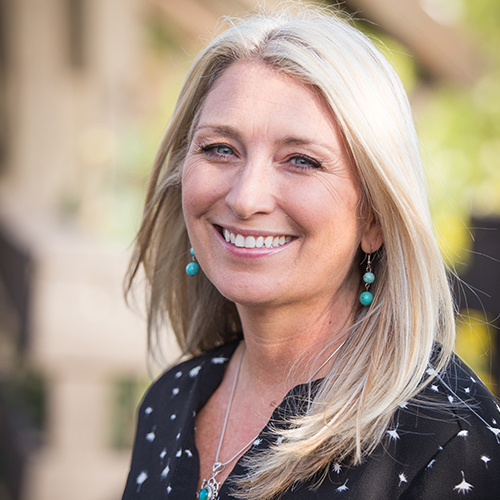 Breastfeeding & Maternal Nutrition Online Course(s) & Continuing Education
Breastfeeding & Maternal Nutrition Online Course(s) & Continuing Education
Access the latest clinical skills and research for Breastfeeding & Maternal Nutrition for Lactation & Breastfeeding professional training. These Breastfeeding & Maternal Nutrition online courses provide practice-changing skills and valuable perspectives from leading global experts. This Breastfeeding & Maternal Nutrition education has been accredited for a variety of CEUs / CERPs and can be accessed on-demand, at your own pace.

A Dairy-free Mediterranean Diet and the Impact on Colic and Allergy in Infants Receiving Human Milk

Joanna Nawfal is a board-certified lactation consultant, a childbirth educator, a hypnobirthing instructor, and a certified baby massage instructor, with 15 years of experience in the field of maternal child health and a Masters of Science in Nursing.
Joanna is passionate about helping mothers and babies in their breastfeeding journey, and was inspired to start this path after having difficulties 10 years ago, breastfeeding her first child, Adam.
She loves teaching expecting parents about the beauty of birth, normal newborn behavior, and is exceptionally passionate about nutrition for mothers as she believes that we can always find cure in food.
Joanna enjoys doing home visits and clinic consultations for breastfeeding. She also offers birth preparation classes in her country, Lebanon, where she lives with her husband and two children. Her favorite activity is getting lost in Lebanon’s bountiful nature where the mountains and the sea are in close proximity. To Joanna, Lebanon, is the most beautiful country in the world.
Colic and allergy symptoms are problems commonly encountered in newborns exclusively receiving human milk, and are thought to be triggered by inflammatory responses in the gut. Maternal diet, especially cow’s milk intake, has been associated with infantile colic and allergies, but no previous studies have examined the effect of a Mediterranean diet. Thus, this new research aims to investigate whether maternal adherence to a dairy-free Mediterranean diet, known for its anti-inflammatory properties, reduces colic and allergy symptoms in infants exclusively fed human milk. This presentation will discuss the methodology of this recent study and present the results of the Mediterranean diet on allergy symptoms and average daily crying of infants.

View Details / Enroll

Diet Culture and Fat-Phobia: Supportive Counseling Around Weight, Health & Lactation

Bonnie Holt Logsdon (she/her), is a Registered Dietitian, International Board Certified Lactation Consultant, and Certified Lactation Educator™ through CAPPA, and a DONA-trained birth doula with over 18 years of experience in community-based practice.
In her private practice, Bonnie Knows Breast, she blends her nutrition and lactation work to support families during the prenatal and postpartum periods. Bonnie also mentors IBCLC candidate students, teaches the Certified Lactation Educator (CLE) course, and offers public speaking on lactation and nutrition-related topics.
Bonnie is committed to giving personalized, affirming care and education to each family, individual, and professional she works with! Supporting families during this critical and emotional time in their lives is such important work. Bonnie promises compassionate, non-judgmental support and information.
Bonnie and her husband Brent, have a 7-year-old son, Finley. They enjoy quality time together playing board games, cooking, traveling, and hiking in as many National Parks as possible.
The mission of Bonnie Knows Breast is to empower people with education to make informed decisions related to their health and the health of their babies. Bonnie supports families of all backgrounds, structures, and identities and believes everyone deserves to be supported in their journey.
The medical community spends a lot of time and energy discussing weight as it relates to health. This message becomes a focus particularly in the postpartum period when people begin to think about “dropping the baby weight”. A frequently shared statement about breastfeeding is that it may cause weight loss. This information can be the driver for some to decide to breastfeed.
Weight stigma is a topic that surrounds our tiny clients as early as in the womb when we talk about delivering a “big baby” or as we focus on growth charts and weight gain for babies which can be a big trigger for the parent who may have a past history of disordered eating. Comments about a baby being “too big” or having reached a certain weight and now needs solid foods sooner are often discussed.
What do our intake forms ask as it relates to weight or past history of eating disorders? How does our office furniture function to seat people comfortably with all body types? How do we communicate to clients about food intake and the impact of lactation, appropriate weight gain for a baby, or the benefits of breastfeeding?
As healthcare professionals, we have to acknowledge our own biases around weight stigma and actively work to change the way we practice to be weight inclusive for the dyad.

View Details / Enroll

Hold the Phone! Diet Does Matter During Breastfeeding: Implication of Diet on Fatty Acid Composition and Other Nutrients

Laurel Wilson, BS, IBCLC, CCCE, CLE, CLD, CPPFE, CPPI owns MotherJourney in Morrison, Colorado. She has her degree in Maternal and Child Health – Lactation Consulting. With twenty-five years of experience working with Parents in the childbearing year and perinatal professionals, Laurel takes a creative approach to working with the pregnant family. She is a co-author of best-selling books, The Greatest Pregnancy Ever: The Keys to the MotherBaby Bond and The Attachment Pregnancy: The Ultimate Guide to Bonding with Your Baby. She currently spends a great deal of her time working with hospitals seeking BabyFriendly Status as a consultant and educator. She strives to provide the latest techniques, research and programs to her clients. Laurel is a board certified as a lactation consultant, childbirth educator, labor doula, lactation educator, Prenatal ParentingTM Instructor, and Pre and Postpartum fitness educator. She served as the CAPPA Executive Director of Lactation Programs for 16 years and trained Childbirth Educators and Lactation Educators for CAPPA certification. She is on the Board of Directors for the United States Breastfeeding Committee, a Senior Advisor for CAPPA, and also on the Advisory Board for InJoy Health. Laurel has been joyfully married to her husband for more than 25 years and has two amazing sons, whose difficult births led her on a path towards helping emerging families create positive experiences. She believes that the journey towards and into parenthood is a life changing rite of passage that should be deeply honored and celebrated.
Topic: Epigenetics and Breastfeeding: The Potential Longterm Impact of Breastmilk - [View Abstract]
Topic: Hold the Phone! Diet Does Matter During Breastfeeding: Implication of Diet on Fatty Acid Composition and Other Nutrients - [View Abstract]
Topic: Inside Out: Unraveling the Dance of NeoHormones, the Estrobolome, and the Microbiome - [View Abstract]
Topic: Postpartum Mood Disorders, Breastfeeding and the Epigenetic Links from Past Into Future - [View Abstract]
Topic: Talk To Me: How Breastmilk Acts as a Communication and Gene Expression Tool Between Mother and Child - [View Abstract]
Topic: The Milk Sharing Conundrum - The Grey Area Between Scope and Need - [View Abstract]
Topic: The Placenta and Breastmilk-Unraveling the Mysterious World of the Intelligent Organs that Protect our Babies - [View Abstract]
Topic: Understanding Zika and Lyme and Breastfeeding - [View Abstract]
Topic: Unraveling the Mysteries of Human Milk: The Fascinating Role of Neohormones, Epigenetics, the Microbiome and More! - [View Abstract]
For more than a decade most lactation professions have been suggesting to families that diet matters very little in terms of breastmilk composition. We have told parents that they can essentially eat whatever they want, it does not matter to the bottom line. However, new studies imply that in fact, diet does matter in terms of the composition of fatty acids and essential nutrients available in milk that can potentially impact life long health. Studies also show that changes in diet can lead to gene methylation which impacts gene expression, as well changing the oligosaccharide profile which shapes the microbiome. This presentation takes you on a tour of some recent research finds to better understand how maternal diet (potentially prenatally through lactation) DOES play a role in breastmilk and how a parent’s diet can potentially influence a breastfeeding baby’s health.

View Details / Enroll

Milk Composition and Maternal Nutrition: Understanding the Impact and Outcomes

Rosa Sorribas is an IBCLC in private practice in Barcelona since 2008. She is a Computer Engineer working on Internet and databases since 1986. In 2002, after her first daughter was born, she and her husband created CrianzaNatural.com, a Spanish portal and forum with information for an attachment parenting style of life. Since then, she's been involved in breastfeeding groups, such as La Leche League and Areola, which she still collaborates with. She offers breastfeeding and babywearing education in Spain, Portugal, Poland, and online. She's been working as doula in home and hospital births. Her website has been the source of dozens of support groups, many breastfeeding conselours and IBCLCs, and has helped hundreds of thousands of families around the world to get their maternity goals. For the last few years she's been very focused in nutrition after a cancer treatment left some issues on her health. She is now running a weekly podcast and video interview to relevant people addressing topics from conception to teens. In February she will launch a training course to become IBCLC, with the help of several new and experienced IBCLCs that she's been mentoring, in a site called ecrianza.com. She lives near the beach of Castelldefels with her two daughters who were homeschooled for 6 years, her lovely husband and her dog Timi.
As opposed to being considered the optimal way to feed a baby, breastfeeding should instead be considered the norm. Human milk is the most appropriate food for all babies, even if the mother is experiencing health issues or challenging life conditions. Human milk, despite maternal conditions, is the best source of food for children. Lifestyle, maternal diet, environmental exposures, and stress, among other factors, can impact health outcomes. This leads to the question of whether these factors can also affect human milk composition. Can babies become nutritionally deficient from the composition of their mother’s milk? What is deficiency? How are those thresholds calculated? This presentation will shed light on this subject, which is undergoing a tremendous amount of new research.

View Details / Enroll

Misconceptions and Current Research on Vegan Diets and Breastfeeding

Pediatrician, neonatology & Clinical Nutrition physician with 19 years’ experience, and IBCLC since 2008. A board member @MILCC. An Associate Alumni, Harvard Medical School & affiliate member @WABA and member @Task force analysis committee@IBLCE.
A volunteer@ILCA (conference committee, equity, study, research and publications and webinar task modules) since 2018 and currently.
A trainer at the Egyptian Board of Pediatrics and a former member committee of the Egyptian Board.
In July 2022, she was nominated for USLCA award winner reward, assigned for excellency in breastfeeding medicine. Among USBC Equity champions 2023.
An “IBCLC & ILCA Award Winner” 2021, award to the most effective lactation consultant worldwide.
In December 2021, she was selected as one of four leaders responsible for the Technical Assistance @ United States Breastfeeding Committee, responsible for training and technical assistance to the breastfeeding network of the state.
She has been selected on 2018 as an expert on the IBLCE® Practice Analysis Task Force. She was nominated as a fellow of ILCA the year 2021.
Her current book “The Ultimate Breastfeeding Study Guide” was released in January 2021, a reference book for healthcare professionals interested in Breastfeeding medicine.
An international speaker at organizations supporting breastfeeding medicine; TalkTools, ABM, ILCA, iLactation, USLCA, Breastfeeding conferences, Australian Live Events and Appalachian Breastfeeding Network webinar series.
The nutritional composition of breast milk is impacted by maternal diet. With vegan breastfeeding mothers, a common concern is that their dietary restrictions could affect their milk supply or limit the milk constituents. Research however shows that vegan mothers are capable of producing nutritionally valuable milk for their infants, as long as the appropriate supplementation of the mother's nutritional requirements is provided. This presentation will review existing knowledge on the variability of specific nutrients in breastmilk of mothers adhering to a plant-based diet and how to create a plan that takes into account both the mother's and infant's nutritional requirements.

View Details / Enroll

Popular Diet Trends: Impact and Safety During Lactation

Meghan McMillin holds a Master’s Degree in Human Nutrition from the University of Illinois at Chicago. She has been a Registered Dietitian Nutritionist (RDN) since 2013 and became an International Board Certified Lactation Consultant (IBCLC) in 2019.
Meghan spent 5 years working clinically in the NICU, pediatric floor and women’s units of a local hospital. In 2019, Meghan started her own private practice and consulting company, Mama & Sweet Pea Nutrition, with a focus on postpartum and infant care. The mama to two young kids with food allergies, helping other families manage food allergies, whether it’s while breastfeeding, during the introduction of solids, or later in childhood, is her passion.
Meghan is a member of the International Lactation Consultant Association and the United States Lactation Consultant Association. She enjoys sharing her knowledge through social media and public speaking. Meghan is the coauthor of the eBook What To Eat When Your Baby Can’t Tolerate Milk, Soy, or Egg Protein; Nutrition guidance for avoiding milk, soy, and/or eggs while lactating.
Meghan has presented both nationally and internationally including for GOLD learning, the National WIC Association and the Academy of Nutrition and Dietetics. In 2020, Meghan was awarded the Emerging Professional in Women's Health Award from the Women's Health Dietetic Practice Group of the Academy of Nutrition and Dietetics.
Topic: Popular Diet Trends: Impact and Safety During Lactation - [View Abstract]
Diet culture is pervasive and it seems everyday brings about a new popular trend or style in how, when, or what to eat. The postpartum period often brings about an incredible amount of pressure to lose weight or “bounce back” to pre-pregnancy body shape. It’s no wonder many turn to popular diet trends with the promises of quick weight loss. However, with a lack of research in the lactating population, there remains concern regarding both the effect these diets may have on milk supply and their safety. This presentation will provide lactation professionals with the information they need to have informative discussions with their clients about popular diet trends.

View Details / Enroll












